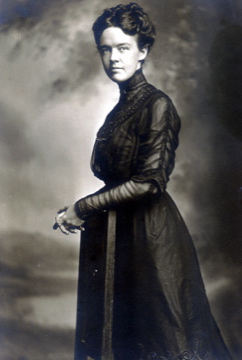History Grad Unveils New Book
Author Stephanie Bayless, who earned two degrees at UALR, will unveiled her new book, “Obliged to Help: Adolphine Fletcher Terry and the Progressive South” Saturday, Aug. 27, at the Central Arkansas Library’s Adolphine Fletcher Terry Branch on Napa Valley Road.
 In the book, Bayless examines why the Southern aristocratic matron, the daughter of a Confederate soldier, devoted herself to improving the lives of others and, in so doing, became a model for activism across the South.
In the book, Bayless examines why the Southern aristocratic matron, the daughter of a Confederate soldier, devoted herself to improving the lives of others and, in so doing, became a model for activism across the South.
Written for both traditional scholars and all those interested in history, civil rights, and the ability of women to create change within the gender limits of the time, the book expands on Bayless’ master thesis she wrote in 2008 prior to receiving a MA in history.
“Stephanie is a great example of practicing what her professors preached – although I believe her talents as an historian far outweigh mine,” said Dr. Johanna Miller Lewis, professor of history and associate dean of the graduate school.
The new book is the first of its kind to consider Terry’s lifelong commitment to social causes.
“Her life was a monument was a monument to progress in the South, particularly in her native state of Arkansas, a place she once described as ‘holy ground’,” said Bayless, a native of Hot Springs.
Born in 1882 into a family of wealth and power, Terry graduated from Vassar College and founded the Little Rock branch of the American Association of University Women. She also formed the first School Improvement Association in Arkansas, forerunner of the Parent Teacher Association; organized the first juvenile court in Arkansas in 1910; and chaired the Pulaski County Juvenile Court board for about 20 years. She helped start the Girls Industrial School near Alexander for girls detained by the court, as well as a temporary home for young people who had no adult supervision.
American Association of University Women. She also formed the first School Improvement Association in Arkansas, forerunner of the Parent Teacher Association; organized the first juvenile court in Arkansas in 1910; and chaired the Pulaski County Juvenile Court board for about 20 years. She helped start the Girls Industrial School near Alexander for girls detained by the court, as well as a temporary home for young people who had no adult supervision.
After Gov. Orval Faubus closed the Little Rock schools in 1957, Terry and two others formed the Women’s Emergency Committee, the first organized group of white moderates to oppose the governor and demand the reopening of the city’s four public high schools. They campaigned successfully to recall three segregationists on the Little Rock School Board, handing the powerful Faubus his first major defeat.